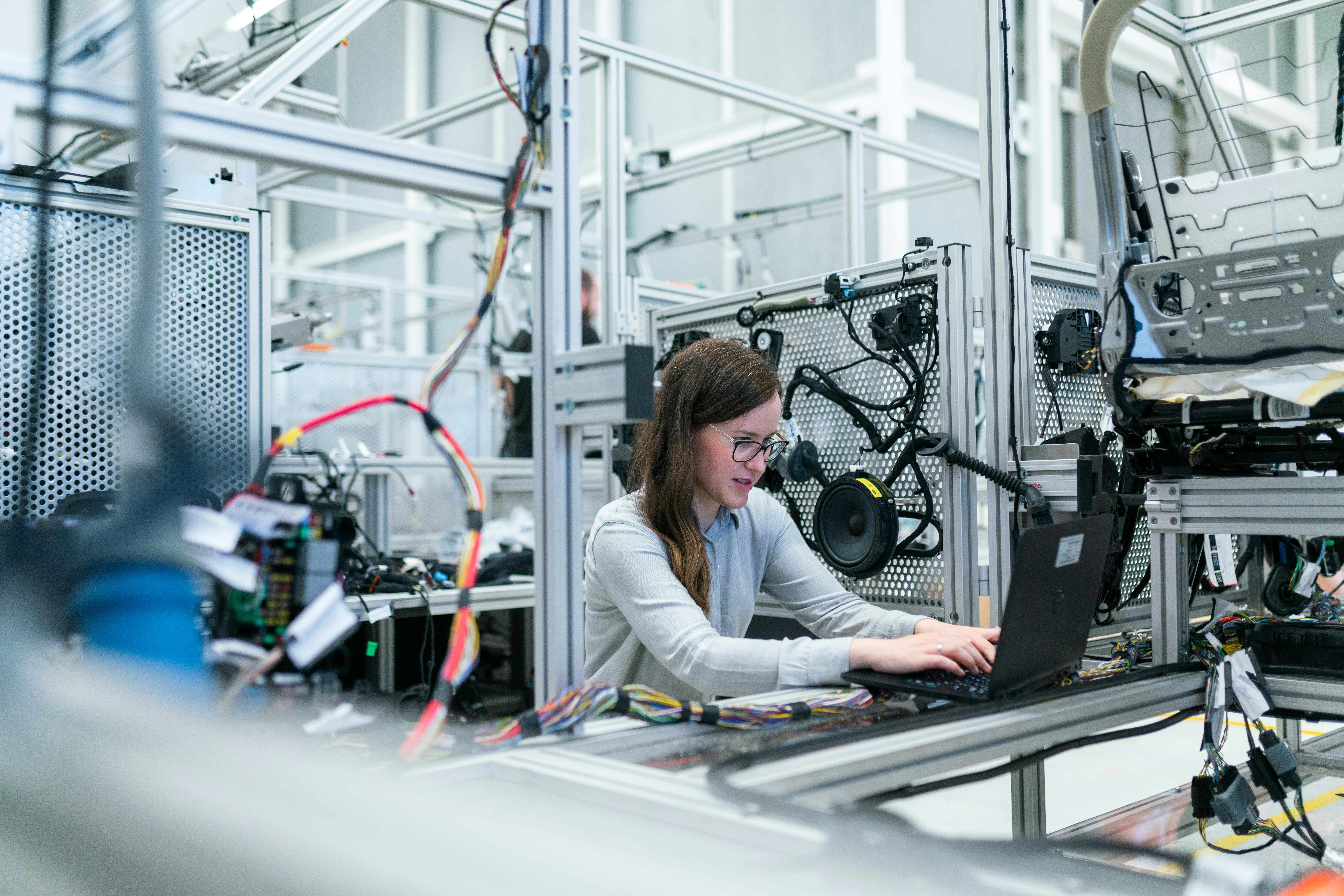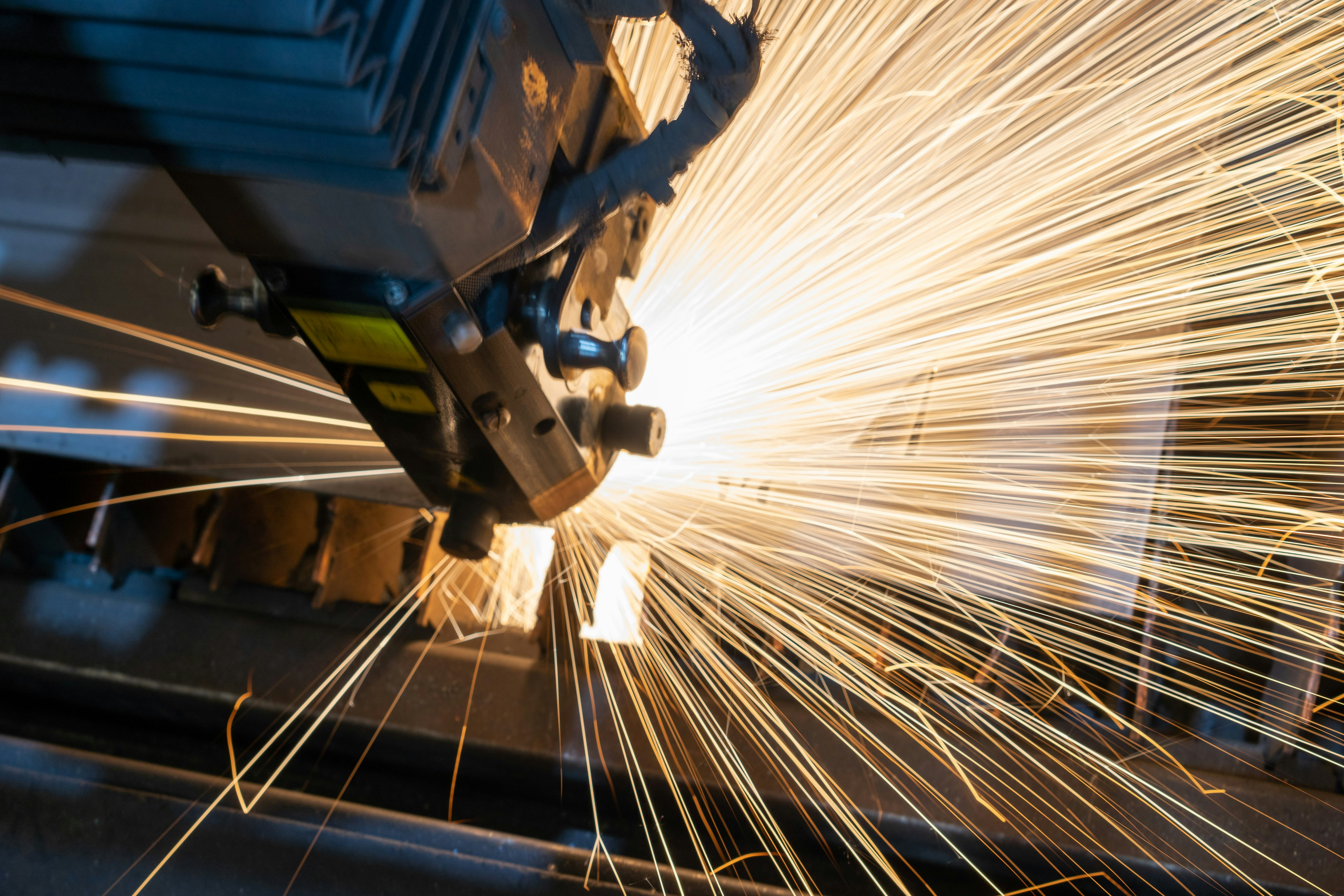Manufacturing is a major part of the American economy. Manufacturing includes the production of products for use or sale. This process involves the creation of items on a huge scale utilizing machinery and industrial production. This mass production process sometimes also utilizes labor, tools, and chemical/biological processing or formulation to complete the manufacturing process.
In the United States alone the largest manufacturing industries include petroleum, steel, automobiles, aerospace, telecommunications, chemicals, electronics, food processing, consumer goods, lumber, and mining. There are approximately 567,460 manufacturing-related jobs in the U.S. as of 2020. There are ways to ensure that you can run a manufacturing operation successfully. Here are a few tips below on how to do just that.
Review the workflow for your manufacturing operation.

When you’re running any type of business, it’s best to figure out what your workflow will be. Workflow at its basic level is the definition, execution, and automation of any business process. These are the steps where tasks, information, and documents are passed along from one person to another. The complete process involves work by one or more people, while also transforming materials, information, or services.
When you’re working as a project manager for any manufacturing operation, creating a seamless workflow comes the territory. Workflow management is something that you might have learned from taking various project manager classes when obtaining your work certification. Workflow management is an essential part of the manufacturing operations process, so it helps to make sure that this system is in place.
Having a good workflow can help your manufacturing process to run a bit smoother and more productively. When you hit a baseline goal with your workflow, this can allow you a chance to go back and review the process. You’ll want to first begin this by altering specific parameters and measuring the effects. Once you go through your workflow review process, this can go a long way in improving your production efficiency.
Invest in training for your employees.
Having a well-trained group of employees will make sure that your manufacturing operation is running at peak proficiency. No matter the type of business, it helps to ensure that your employees know what they are doing. When it comes to something that can be as complex and demanding as manufacturing, this is extremely important, When you hire a new employee, definitely ensure that they receive the proper training.
This can include shadowing a current employee and receiving hands-on experience with learning different aspects of the manufacturing process. You can also have the employee take part in various workshops or orientations where they are being taught by an instructor, using the true and tried method of book learning. At the end of the day, you are helping an employee with learning as much as possible about manufacturing operations by exposing them to these various forms of training.
Don’t think education ends there. To keep your employees abreast of advances in manufacturing, and how it will affect your business, training is often needed even after they are hired for your job. This keeps your employees focused and well prepared for those manufacturing changes which can benefit your company in the long run.
For example, say this involves your workers learning about the new advanced oil pumping equipment which has been installed at your petroleum plant. You need to make sure that your employees are well trained to deal with this new piece of machinery. To get the maximum and beneficial use out of this equipment, or any new manufacturing activity/equipment, invest in employee training.
Modernize your manufacturing processes.

This goes hand in hand with the point of “invest in employee training.” As with any business, in any industry, you want to do your best to stay up on what advancements are taking place in your industry. Manufacturing operations is an area that has undergone many innovations over the years. You can even do something as simple as updating the cybersecurity support which your manufacturing plant utilizes. Having an updated way of maintaining your cybersecurity management, and safe internet connectivity is a good way to modernize your manufacturing processes. It helps to stay abreast of new changes in this arena so that you can improve your manufacturing operations.
You can also modernize your manufacturing process internally. Work with your inner management team to find out what issues, problems, or bottlenecks they come across on a daily basis. Help them to find those stopgaps which prevent them from successfully finishing their part of the manufacturing process. They might bring a host of objectives and key results that you weren’t aware even existed. By creating such a constant stream of ideas, you are giving yourself another route through which you can improve your manufacturing operations.
Make an investment in preventative maintenance.
Getting ahead of things is a great way to cut off potential problems that might crop up down the road. This is a great idea to apply to life in general to avoid future headaches. Humanity often has a habit of playing defense, rather than planning ahead with a good offense. This can be done by making an investment in preventative maintenance when it comes to manufacturing.
As mentioned cutting off a prospective problem at the beginning can help you not have to deal with the issue in the long run. For example, imagine being able to figure out, as a business, how to deal with your debt obligations sooner rather than later? When you figure out what’s a good TIE ratio, you are getting ahead of a potential debt-related problem from hurting your business in the future.
Find those problem areas of the mechanical or technological manufacturing process which your business is experiencing and fix them. One of the worst things that you can do is to have your employees sitting around waiting for work to do because of a maintenance issue. This decreases productivity and can harm your bottom line in the long run. It can also create an environment within your company or plant of worry and concern. To put it simply, when people see that there isn’t any work available for them to do, they become concerned about their employment future.
Perform preventative maintenance as often as possible. There’s nothing wrong with being overprepared when it comes to making sure your manufacturing process is working at its peak capacity. This will help you to improve your manufacturing operations in the long run.

